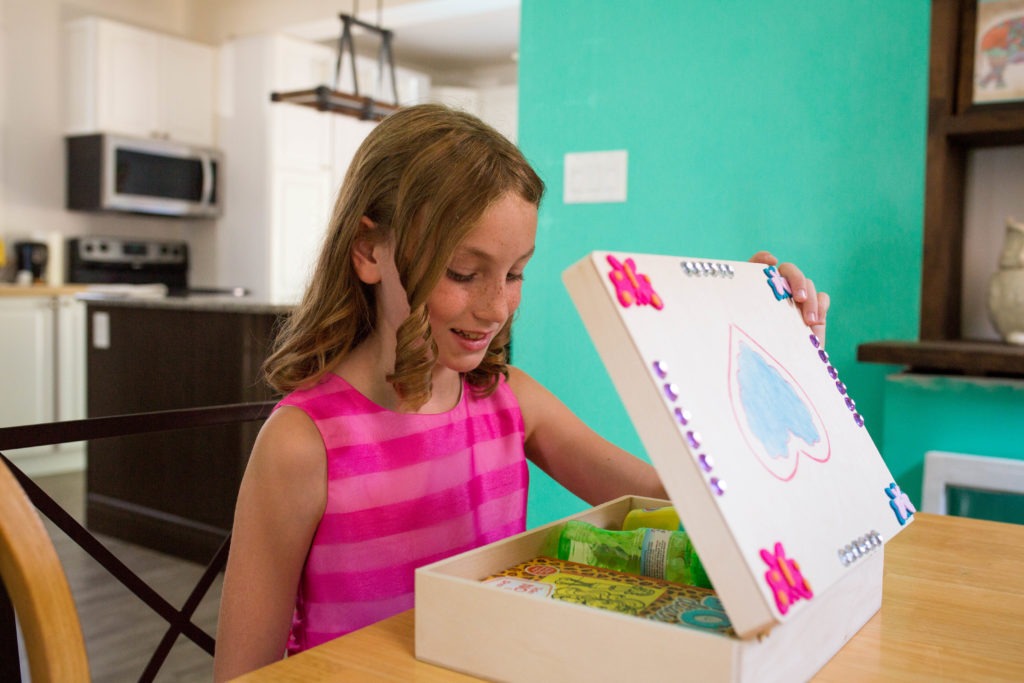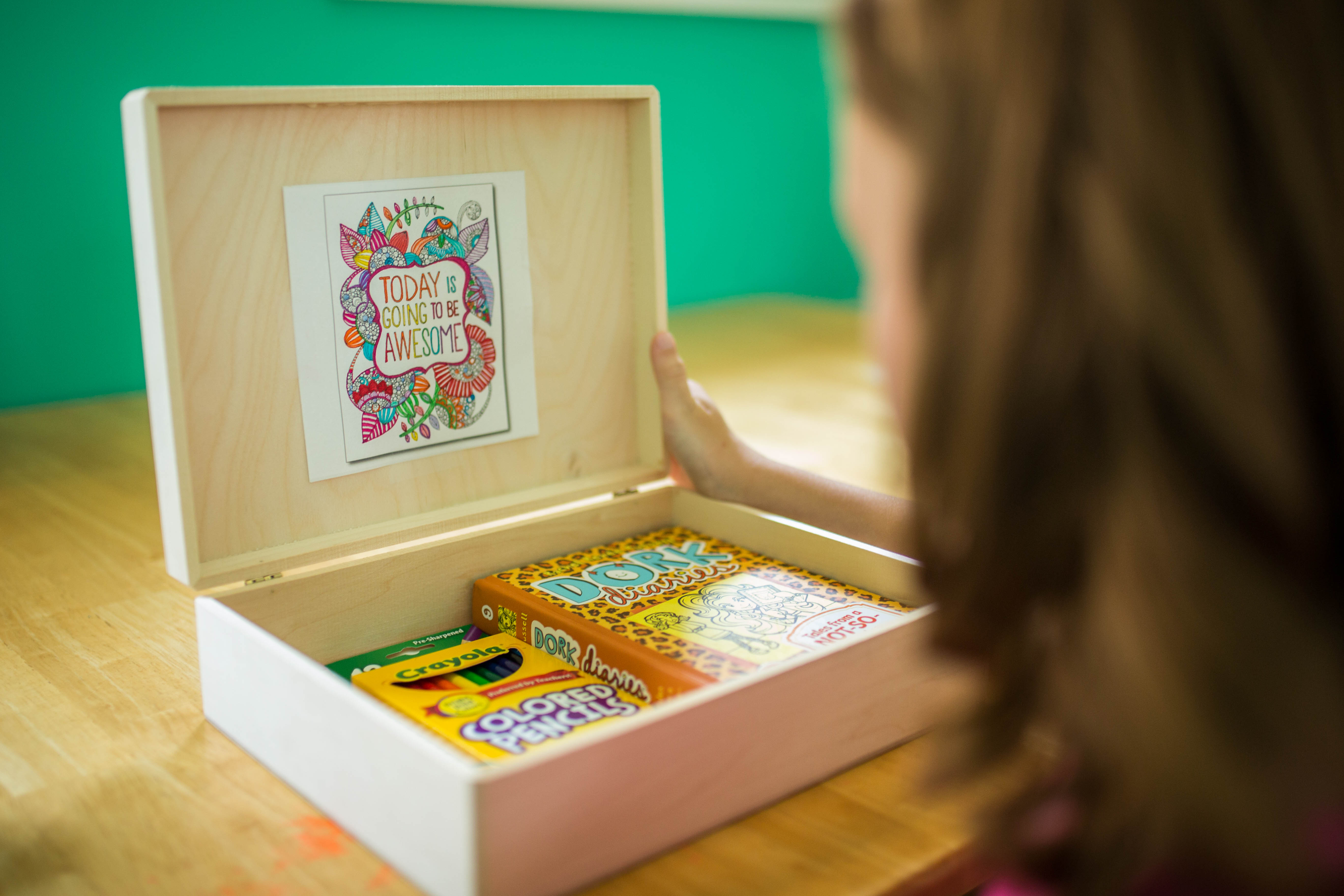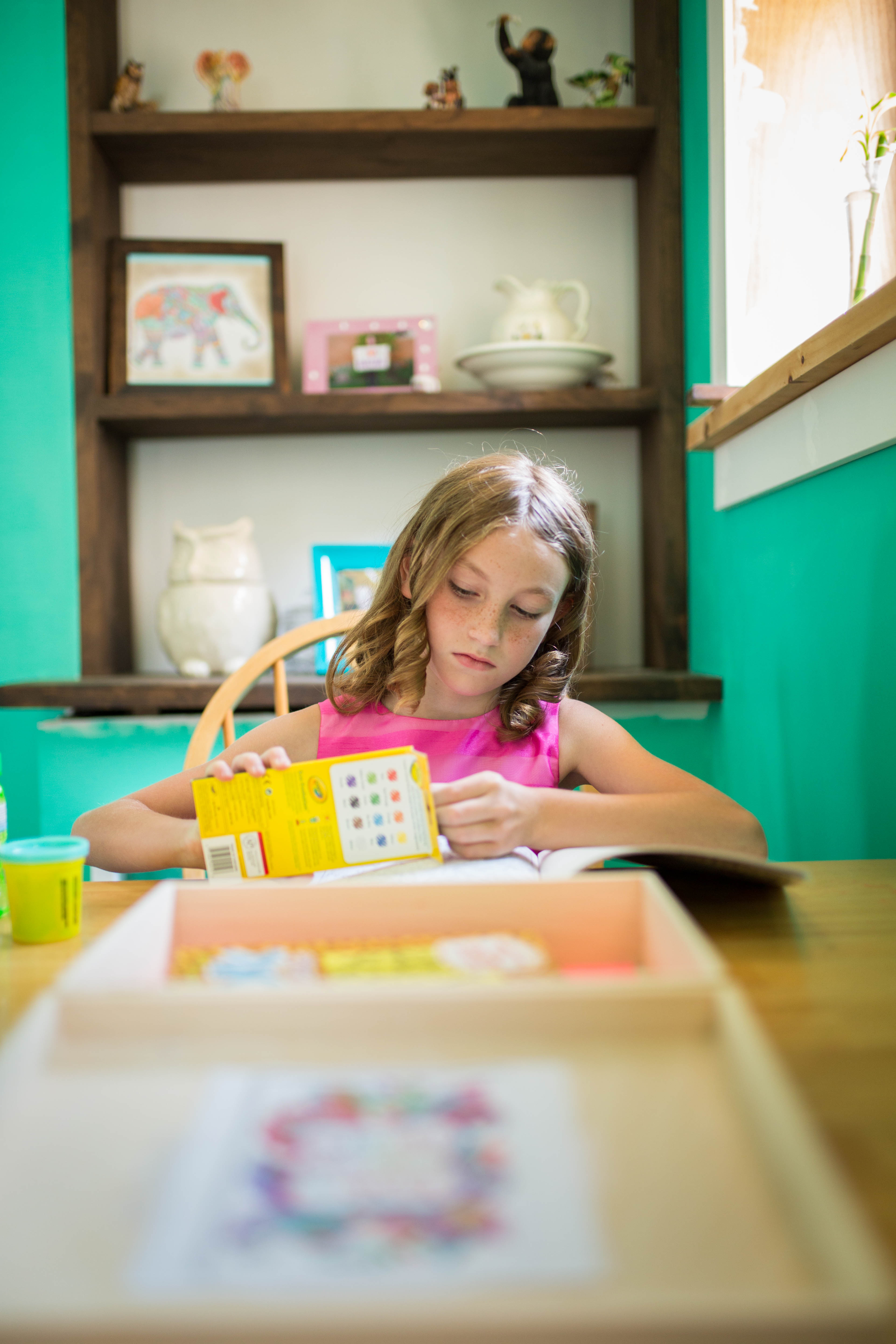
‘Coping box’ a solution for young girl’s pain
Nine-year-old Kayla Buitenhuis loves animals, running, cleaning up her neighbourhood and going to school. For Kayla, however, every day is a challenge due to chronic pain.
“She is a fun-loving and energetic little girl,” says mom Nicole. “But before we came to McMaster Children’s Hospital, her chronic pain limited what she could do and there were even days when she didn’t want to do anything.”
Family-centred care
Kayla’s treatment was dependant on medication and frequent visits to emergency rooms. All this changed last fall when she met with staff and physicians at McMaster Children’s Hospital (MCH).
“Right from the beginning, the team acknowledged her pain and the impact that it was having on our family,” says Nicole.
“So many times patients wait and then react to pain, but with chronic pain it is important to be proactive.”
At MCH, care is provided in a family-centred environment by a team of individuals from a variety of disciplines. “The staff and physicians who cared for Kayla always took the time to ensure that we were all knowledgeable about Kayla’s needs and what we could do to help her,” explains Nicole.
Kayla’s ‘coping box’
At MCH, Kayla was also taught how to manage her pain using strategies that she could do on her own such as deep breathing, taking breaks at school, going for walks, and stretching. Another tool that she was introduced to was a ‘coping box.’ Physiotherapist Brooke Biggs explains: “So many times patients wait and then react to pain, but with chronic pain it is important to be proactive. A coping box is a tool that promotes self-management. It is filled with things that are meaningful to the individual such as colouring books and puzzles.”

Kayla’s coping box contains items like colouring pencils and books

Kayla’s coping box has helped her to improve how she manages her pain independently
“It’s incredibly rewarding to see patients like Kayla make such progress,” says clinical and health psychologist, Dr. Kim Edwards. “Chronic pain can be physiological, but it can also be due to other causes. Our role is to understand what is happening to the patient, and then identify how we can best support the patient and family.”
Nicole says that Kayla is definitely making progress. “Over the past few months, we’ve noticed a significant change in Kayla. She is more independent and works hard to manage the pain on her own, she’s happier and wants to do more.”
And Kayla’s advice to other children with chronic pain: “Never give up and always try your best!”
